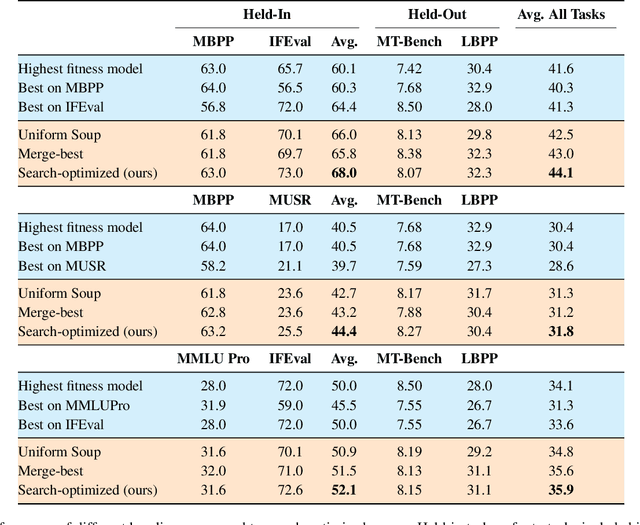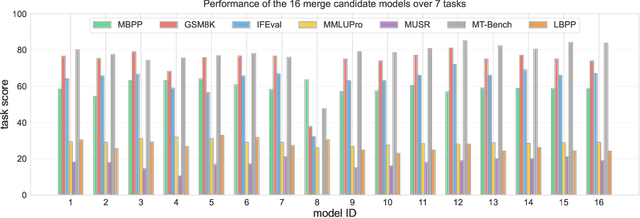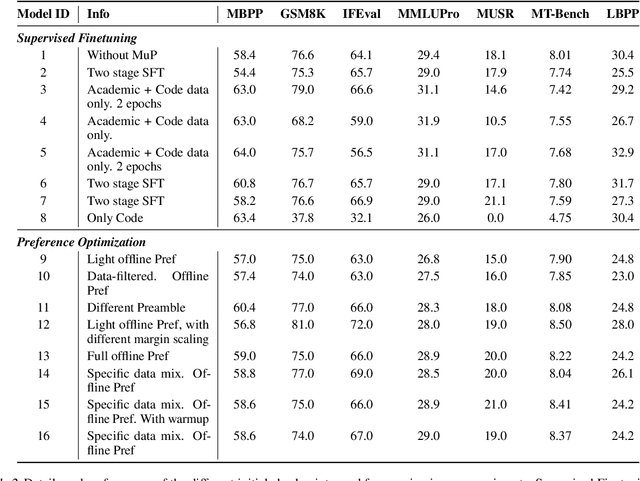Yi-Chern Tan
If You Can't Use Them, Recycle Them: Optimizing Merging at Scale Mitigates Performance Tradeoffs
Dec 05, 2024



Abstract:Model merging has shown great promise at combining expert models, but the benefit of merging is unclear when merging ``generalist'' models trained on many tasks. We explore merging in the context of large ($\sim100$B) models, by \textit{recycling} checkpoints that exhibit tradeoffs among different tasks. Such checkpoints are often created in the process of developing a frontier model, and many suboptimal ones are usually discarded. Given a pool of model checkpoints obtained from different training runs (e.g., different stages, objectives, hyperparameters, and data mixtures), which naturally show tradeoffs across different language capabilities (e.g., instruction following vs. code generation), we investigate whether merging can recycle such suboptimal models into a Pareto-optimal one. Our optimization algorithm tunes the weight of each checkpoint in a linear combination, resulting in a Pareto-optimal models that outperforms both individual models and merge-based baselines. Further analysis shows that good merges tend to include almost all checkpoints with with non-zero weights, indicating that even seemingly bad initial checkpoints can contribute to good final merges.
Aya Expanse: Combining Research Breakthroughs for a New Multilingual Frontier
Dec 05, 2024



Abstract:We introduce the Aya Expanse model family, a new generation of 8B and 32B parameter multilingual language models, aiming to address the critical challenge of developing highly performant multilingual models that match or surpass the capabilities of monolingual models. By leveraging several years of research at Cohere For AI and Cohere, including advancements in data arbitrage, multilingual preference training, and model merging, Aya Expanse sets a new state-of-the-art in multilingual performance. Our evaluations on the Arena-Hard-Auto dataset, translated into 23 languages, demonstrate that Aya Expanse 8B and 32B outperform leading open-weight models in their respective parameter classes, including Gemma 2, Qwen 2.5, and Llama 3.1, achieving up to a 76.6% win-rate. Notably, Aya Expanse 32B outperforms Llama 3.1 70B, a model with twice as many parameters, achieving a 54.0% win-rate. In this short technical report, we present extended evaluation results for the Aya Expanse model family and release their open-weights, together with a new multilingual evaluation dataset m-ArenaHard.
 Add to Chrome
Add to Chrome Add to Firefox
Add to Firefox Add to Edge
Add to Edge